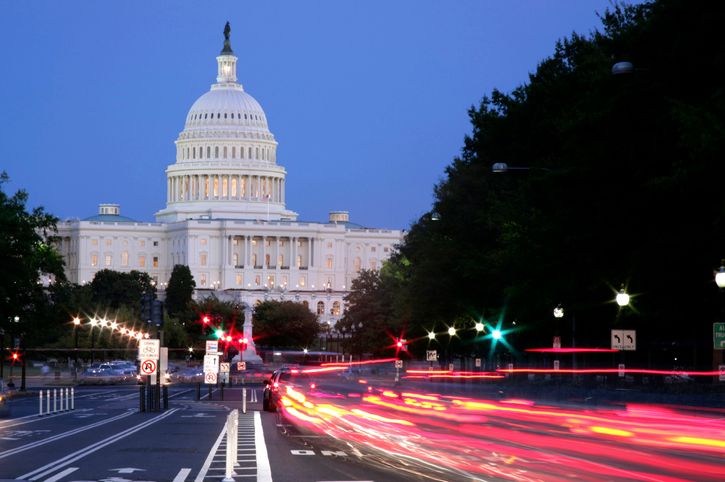Data Suggests Police Prey On Drivers In Black DC Neighborhoods To The Tune Of $467 Million
Source: Hisham Ibrahim / Getty
In Washington D.C., Black residents fill the city’s coffers with fines and fees collected through traffic enforcement. A new analysis from The Washington Post found that 62 percent of all fines were from majority Black neighborhoods with an average median income of less than $50,000.
Metro Database Reporter John D. Harden searched through millions of records over a five-year period from 2016 to 2020. According to the report, the disparity remains even through the pandemic period of March 2020 to June 2021.
In a Twitter thread, Harden laid out some facts about the cycle of debt that can trap some drivers in the District.
So for now, motorists living paycheck to paycheck are at risk of losing financial stability because of limited options to pay debts and data pinpoints the neighborhoods where people are likely to get a ticket and face the burden that often follows. https://t.co/TgzCGcUI9H
— John D. Harden (@Jdharden) August 7, 2021
Harden’s reporting also illustrates the importance of data in exposing inequality. Data analyzed revealed that two-thirds of drivers ticketed by police since 2019 were Black.
Mayor Muriel Bowser announced a traffic ticket amnesty program in the Spring, which runs through September. During the amnesty period, the city has waived all additional penalties and fees for drivers who can pay the initial obligation.
But the program requires those with outstanding tickets to enter a settlement agreement, not a payment plan, that must be completed by the end of September. Once the amnesty period has ended, the penalties and additional charges will be added back to the account of any driver who did not resolve their debt.
City Council Member Trayon White Sr. told Harden the traffic enforcement system “is crippling the finances of poor and working-class Black and Brown families.” White has long been an advocate of reforming the city’s traffic enforcement system.
While not the first outlet to examine the burden of traffic debt on Black communities, the Post’s new analysis highlights an ongoing issue at a time when financial stability is increasingly a struggle for many. As the Covid-19 pandemic continues, Black communities bear the burden of a battle fought on multiple fronts.
Earlier this year, Illinois Gov. J.B. Pritzker signed a law that would cease driver’s license penalties for non-moving violations. A 2018 Pro-Publica investigation revealed Black drivers on Chicago’s south and west sides were disproportionately hit with license suspensions for unpaid fines. The outlet also ran a series on the criminalization of poverty and the burden of traffic debt.
No doubt traffic enforcement is an easy and fruitful revenue generator for cities across the country. But earning revenue should be counterbalanced with public well-being. Continuing to pile on fines for people with no means to pay the original ticket will lead to dire financial consequences for many people who may already be struggling.
See Also:
Joel Caston Is The First Incarcerated Person In DC To Hold Public Office
The Fight For D.C. Statehood Is A 21st Century Civil Rights Issue
[ione_media_gallery id=”3956168″ overlay=”true”]

